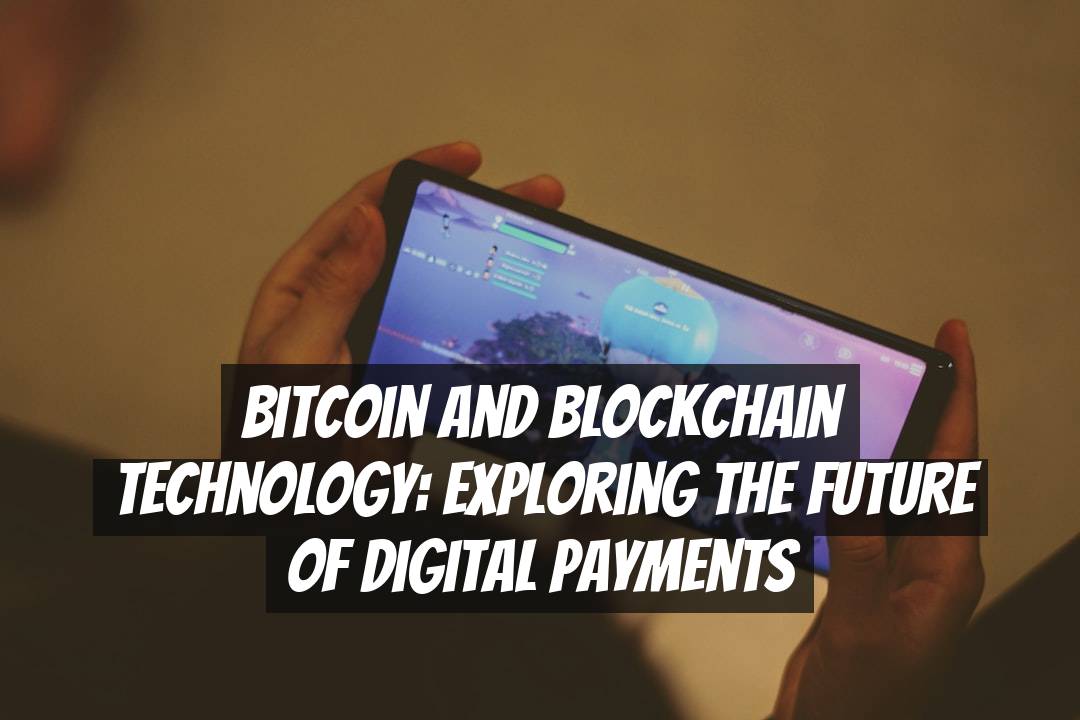Bitcoin and Blockchain Technology: Exploring the Future of Digital Payments
Welcome to the world of cryptocurrencies! If you’re curious about Bitcoin and blockchain technology, you’ve come to the right place. In this article, we’ll discuss the basics and explore the exciting future of digital payments.
Understanding Bitcoin
Bitcoin, created in 2009, was the first decentralized cryptocurrency. Unlike traditional currencies, Bitcoin is not controlled by any central authority such as a government or a financial institution. It operates on a technology called blockchain, which keeps a record of all transactions made using Bitcoin.
So, how does Bitcoin work? When you make a Bitcoin transaction, it is added to a “block” of transactions along with many others. This block is then added to the blockchain, which is essentially a digital ledger that is publicly accessible. This decentralized nature ensures transparency, security, and immutability of transactions. You can think of Bitcoin as digital gold, a scarce asset with a finite supply that can be used for online transactions.
Exploring Blockchain Technology
Now, let’s dive deeper into blockchain technology, the underlying framework behind Bitcoin and other cryptocurrencies. Blockchain is a distributed ledger that records and verifies transactions across multiple computers or nodes, making it incredibly secure and virtually impossible to tamper with. Each block in the chain contains a cryptographic link to the previous one, forming a chronological sequence of transactions.
Blockchain technology has far-reaching implications beyond just digital currencies. It has the potential to revolutionize various industries, including finance, supply chain management, healthcare, and more. Blockchain can provide enhanced transparency, reduce fraud, eliminate intermediaries, and increase efficiency in these sectors.
The Future of Digital Payments
The rise of Bitcoin and blockchain technology has sparked a new era of digital payments. As more people and businesses adopt cryptocurrencies, traditional payment methods may become outdated. Why? Because cryptocurrencies offer numerous advantages:
1. Decentralization:
With cryptocurrencies, you can make peer-to-peer transactions without the need for intermediaries like banks. This reduces fees and speeds up the payment process.
2. Improved Security:
Blockchain technology ensures that transactions are transparent and cannot be altered or manipulated. This increases trust and reduces the risk of fraud.
3. Global Accessibility:
Bitcoin and other cryptocurrencies are accessible to anyone with an internet connection, regardless of their location or financial background. This opens up a world of opportunities for the unbanked and underbanked populations.
4. Faster Settlements:
Traditional financial systems can take days or even weeks to settle transactions. In contrast, Bitcoin transactions can be processed within minutes, providing faster and more efficient payments.
FAQs: Your Questions Answered
Q: Is Bitcoin anonymous?
A: Bitcoin transactions are pseudonymous, meaning they are not directly tied to your real-world identity. However, it’s essential to note that transactions can still be tracked on the blockchain. If you want to enhance your privacy, you can use additional tools like VPNs or mixers.
Q: How can I acquire Bitcoin?
A: There are several ways to acquire Bitcoin. You can buy it from cryptocurrency exchanges using traditional currencies, receive it as payment for goods or services, or even mine it by validating transactions on the blockchain.
Q: Can blockchain technology be hacked?
A: While no system is completely foolproof, blockchain technology is highly secure due to its decentralized and cryptographic nature. Hacking the entire blockchain would require enormous computational power, making it highly improbable.
Q: What is the future of cryptocurrencies?
A: The future of cryptocurrencies looks promising. As more businesses and individuals adopt blockchain technology, cryptocurrencies may become a mainstream form of payment. Additionally, the development of central bank digital currencies (CBDCs) indicates that governments are recognizing the potential of cryptocurrencies.
In conclusion, Bitcoin and blockchain technology have opened up a world of possibilities for the future of digital payments. The decentralized nature of cryptocurrencies provides increased security, transparency, and accessibility. As you explore this exciting world, remember to stay informed, exercise caution, and continue learning about the ever-evolving landscape of cryptocurrencies.
Edulia Coinfield’s journey from a curious technology enthusiast to a highly regarded crypto educator and analyst is a testament to her passion for knowledge-sharing and the immense potential of blockchain technology. Her contributions to the industry and dedication to empowering others have solidified her position as a prominent woman figure in the world of cryptocurrencies.

